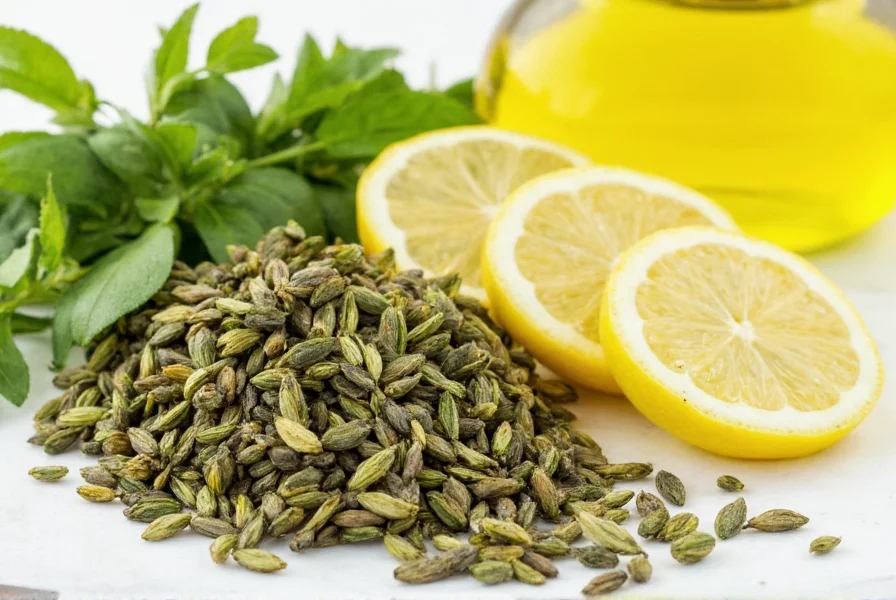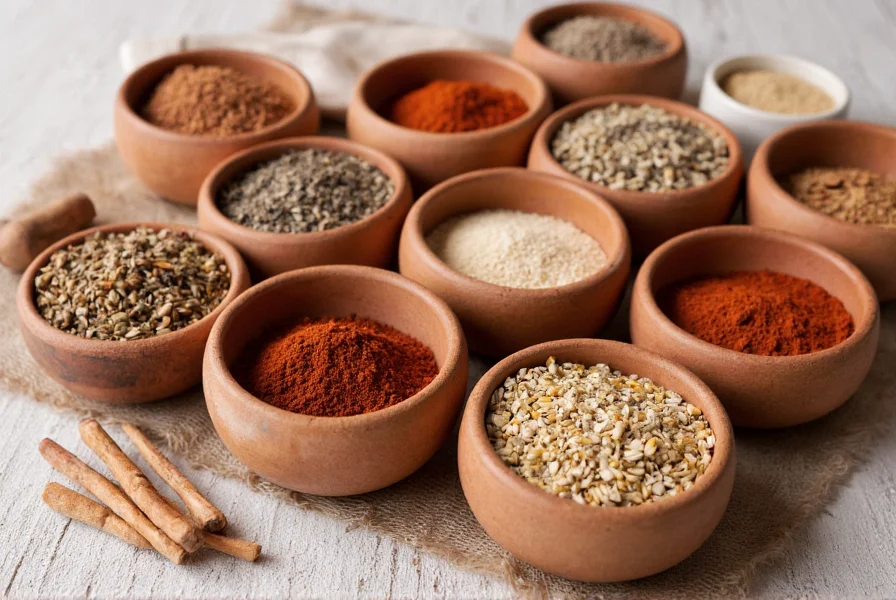Understanding Greek spices goes beyond simply listing ingredients—it's about appreciating how these flavor elements work together to create one of the world's most celebrated culinary traditions. Greek cuisine relies on quality spices used thoughtfully rather than overwhelming complexity, allowing fresh ingredients to shine while providing distinctive Mediterranean character.
Core Greek Spices and Their Culinary Roles
Greek cooking features a distinctive blend of herbs and spices that have been used for centuries, shaped by Greece's geography, climate, and historical trade routes. Unlike some cuisines that rely on intense heat or complex spice mixes, traditional Greek seasoning emphasizes balance and enhancement of natural flavors.
| Spice | Flavor Profile | Traditional Greek Uses | Substitution Options |
|---|---|---|---|
| Greek Oregano | Earthy, slightly bitter, robust | Tomato sauces, grilled meats, salads, lemon-oregano marinades | Mediterranean oregano (stronger than Mexican) |
| Dill | Fresh, grassy, slightly anise-like | Tzatziki, fish dishes, vegetable salads, lemon-dill sauces | Fennel fronds (milder), fresh parsley (different profile) |
| Mint | Cool, refreshing, slightly sweet | Lamb dishes, vegetable salads, yogurt sauces, teas | Basil (different profile), lemon balm |
| Cinnamon | Warm, sweet, complex | Stews, rice dishes, desserts, avgolemono sauce | Allspice (different profile), cassia (stronger) |
| Allspice | Warm blend of clove, cinnamon, nutmeg | Meat dishes, stews, tomato sauces, holiday recipes | Clove + cinnamon + nutmeg mix (1:1:1 ratio) |
What Makes Greek Oregano Different?
When exploring authentic Greek seasoning ingredients, Greek oregano deserves special attention. Unlike the Mexican oregano common in many supermarkets, Greek oregano (Origanum vulgare subsp. hirtum) has a more robust, earthy flavor with subtle bitter notes that complement olive oil and lemon perfectly. This Mediterranean herb variety contains higher levels of thymol and carvacrol, compounds responsible for its distinctive pungency.
For traditional Greek cooking spices, always choose dried oregano over fresh when authentic flavor is the goal. The drying process concentrates the essential oils, creating the characteristic intensity that defines Greek dishes. Sprinkle it generously on tomatoes, mix with olive oil for bread dipping, or combine with lemon juice for the classic souvlaki marinade.

Regional Spice Variations Across Greece
Greek spice usage isn't uniform across the country—regional differences reflect local agriculture and historical influences. In mainland Greece, particularly around Athens, you'll find heavier use of oregano and dill. The Aegean islands incorporate more wild herbs gathered from rocky terrain, while Crete features distinctive use of dittany (a local mountain herb). Northern Greece shows Ottoman influences with slightly more complex spice blends.
Understanding these regional variations helps home cooks create more authentic Greek recipes. For island-inspired dishes, emphasize dill and mint. For mainland specialties like moussaka, focus on the oregano-cinnamon-allspice combination. Cretan cuisine benefits from adding a touch of wild thyme or marjoram.
Proper Storage for Maximum Flavor
Maintaining the potency of your Greek spices requires proper storage techniques. Light, heat, and moisture are the enemies of dried herbs and spices. For optimal shelf life:
- Store in airtight containers away from direct sunlight
- Keep away from heat sources like stovetops
- Buy whole spices when possible and grind as needed
- Replace dried herbs after 6-12 months for peak flavor
- Store in cool, dark pantries rather than clear glass containers
Fresh herbs like dill and mint should be treated differently—store upright in water like flowers, with a loose bag covering, in the refrigerator. Change the water every two days to maintain freshness for up to one week.
Creating Authentic Greek Flavor Profiles
The magic of Greek seasoning ingredients lies in their combinations. Rather than using single spices in isolation, traditional Greek cooking builds flavor through strategic pairings:
- Lemon-Oregano: The quintessential Greek combination for grilled meats and vegetables
- Dill-Lemon: Essential for fish dishes and tzatziki sauce
- Cinnamon-Allspice: The warming base for many stews and tomato-based sauces
- Mint-Lemon: Refreshing combination for lamb dishes and vegetable salads
When working with authentic Greek spice blends, remember that less is often more. Greek cuisine celebrates fresh ingredients, so spices should enhance rather than dominate. Start with smaller amounts than you might use in other cuisines, taste frequently, and adjust as needed.

Common Questions About Greek Spices
What's the difference between Greek oregano and regular oregano?
Greek oregano (Origanum vulgare subsp. hirtum) has a more robust, earthy flavor with subtle bitter notes compared to Mexican oregano commonly found in supermarkets. It contains higher levels of thymol and carvacrol, giving it distinctive pungency that complements olive oil and lemon perfectly in traditional Greek recipes.
Can I substitute regular cinnamon for Greek cinnamon in recipes?
Yes, but with consideration. Greek cooking typically uses Ceylon cinnamon ("true" cinnamon), which has a more delicate, complex flavor than the stronger Cassia cinnamon common in many countries. If using Cassia, reduce the amount by about 25% to avoid overpowering the dish, as it has a more intense, slightly bitter profile.
Why do Greek recipes use dried oregano instead of fresh?
Drying concentrates the essential oils in oregano, creating the characteristic intensity that defines Greek dishes. Fresh oregano has a milder flavor that doesn't provide the same robust profile needed for authentic Greek seasoning. The drying process enhances the thymol and carvacrol compounds responsible for Greek oregano's distinctive pungency that works perfectly with olive oil and lemon.
What's the most versatile Greek spice for beginners?
Greek oregano is the most versatile starting point for authentic Greek cooking spices. It works beautifully with tomatoes, olive oil, and lemon—the foundation of many Greek dishes. Sprinkle it on roasted vegetables, mix with olive oil for bread dipping, or combine with lemon juice for marinades. Its robust flavor defines the Mediterranean profile while remaining approachable for those new to Greek seasoning ingredients.
How do I know if my Greek spices are fresh enough to use?
Fresh Greek spices should have vibrant color and strong aroma. Crush a small amount between your fingers—if you can't smell the distinctive fragrance immediately, they've lost potency. Dried oregano should be dark green to brownish-green, not faded. Whole spices generally stay fresh longer than ground; replace dried herbs after 6-12 months and ground spices after 3-6 months for optimal flavor in authentic Greek recipes.










 浙公网安备
33010002000092号
浙公网安备
33010002000092号 浙B2-20120091-4
浙B2-20120091-4